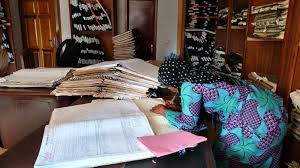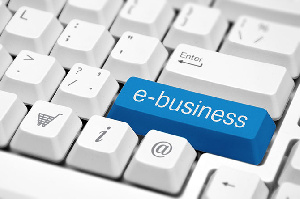
Introduction
How to Register a Business in Cameroon (2025 Guide) can be one of the most rewarding decisions you make as an entrepreneur. The Central African country has seen steady growth in entrepreneurship, innovation, and government-backed reforms aimed at simplifying the business environment. Whether you are a Cameroonian citizen, a diaspora investor, or a foreigner interested in doing business in Cameroon, this 2025 guide to business registration in Cameroon will walk you through the step-by-step process, legal requirements, necessary documents, timelines, and costs involved.
In this comprehensive blog, we cover everything from choosing your business structure to obtaining your tax identification number (TIN). Let’s dive in!
Why Start a Business in Cameroon?
Cameroon offers several advantages for entrepreneurs:
- A growing consumer market of over 27 million people
- Access to both Francophone and Anglophone markets
- Strategic geographic location in Central Africa
- Government incentives for SMEs and startups
- Free zones and tax exemptions for certain sectors
However, to benefit from these advantages, your business must be legally registered and compliant with Cameroonian regulations as the steps are shown below on how to register your business in Cameroon
Step-by-Step Guide to Business Registration in Cameroon (2025)
Step 1: Choose the Right Business Structure
Your first step on how to Register a Business in Cameroon (2025 Guide) is deciding which legal entity suits your business needs. In Cameroon, common business structures include:
Business Type
Sole Proprietorship (Entreprise Individuelle)
Private Limited Company (SARL)
Public Limited Company (SA)
Partnership (SNC/SC)
Nonprofit/NGO
Description
Suitable for small businesses; owned by one person
Minimum 1, maximum 50 shareholders; limited liability
For larger businesses; must have at least 1 director
Two or more people managing a business together
For social or community impact; must register with MINAT
Tip: SARL is the most common type of entity for SMEs in Cameroon due to its flexible structure and limited liability.
Step 2: Check for Name Availability
You must ensure that your proposed business name is unique and not already in use. The process involves:
- Choosing a name that reflects your business
- Performing a name search at the Centre de Formalités de Création d’Entreprises (CFCE) or regional one-stop shops
- Paying a small fee for reservation
Pro Tip: Pick a name that includes keywords relevant to your business for better branding and digital visibility.

Step 3: Draft and Notarize Statutes or Deeds
For companies (SARL, SA, etc.), you are required to prepare the following:
- Company statutes (Acte constitutif or statuts)
- Information about shareholders, capital contributions, object of the company, headquarters, and duration
- Get the statutes notarized by a licensed notary
Documents typically needed:
- Copy of ID cards/passports for shareholders
- Notarized statutes
- Proof of address for the business location
- Taxpayer information (if already obtained)
Step 4: Deposit Share Capital
Next, deposit the required share capital into a Cameroonian commercial bank. You will receive a bank attestation or certificate of deposit, which you must submit to the registrar.
- Minimum capital for SARL: XAF XXXXXXX
- For SA and others, the capital may vary
Step 5: Register with the CFCE or GUCE
Cameroon uses “one-stop shop” registration centers, known as CFCE (Centre de Formalités de Création d’Entreprises) or GUCE (Guichet Unique), to simplify business registration. These agencies allow you to complete multiple processes at once. This is how to Register a Business in Cameroon (2025 Guide)
At CFCE or GUCE, you will:
- Submit your notarized statutes
- Present proof of capital deposit
- Provide photocopies of ID/passports
- Pay applicable registration and stamp duty fees
- Apply for tax registration
- Obtain your Certificate of Incorporation (RCCM)
Processing time: 3–5 business days (may vary by region)
Step 6: Obtain Taxpayer Identification Number (TIN)
Every business must obtain a Numéro d’Identification Fiscale (NIF), or Taxpayer Identification Number. This is mandatory for paying taxes, invoicing clients, and opening business bank accounts.
Documents needed:
- Copy of incorporation certificate
- Shareholder IDs
- Business address proof
- Lease agreement (if renting a space)
The NIF is obtained from the Tax Centre (Centre des Impôts) in your locality or directly through the CFCE during registration.

Step 7: Declare and Obtain a Business License (Patente)
A patente or business license is required before starting any commercial activity. It is issued by the Tax Authority and proves that your business is legally allowed to operate.
Fees are based on:
- Nature of your activity
- Annual turnover
- Location (municipality)
Failure to obtain a patente can result in fines or forced closure.
Step 8: Register with CNPS (Social Security)
If you plan to employ staff, you must register with the Caisse Nationale de Prévoyance Sociale (CNPS). Employers are required to contribute to employee pensions and social protection.
Documents needed:
- RCCM
- Taxpayer Number
- Employee list (if available)
- Company address
Required Documents Checklist for Business Registration in Cameroon
| Document | Who Provides It |
| Valid ID or Passport | Each shareholder |
| Business Name Reservation Certificate | CFCE |
| Notarized Statutes | Notary |
| Capital Deposit Certificate | Commercial Bank |
| Lease or property agreement | Landlord or owner |
| Taxpayer ID Application | CFCE or Tax Centre |
| Company Registration Form | CFCE |
How Long Does Business Registration Take?
If your documents are complete and in order, the entire process can take between 5 to 10 working days. Delays often occur due to:
- Errors in company statutes
- Incomplete documentation
- Delays at tax or CNPS offices
Hiring a local business consultant in Cameroon can help speed up the process.
How Much Does It Cost to Register a Business in Cameroon?
| Item | |
| Name Reservation | Contact Us |
| Notary Fees | Contact Us |
| Capital Deposit | xxxxx |
| Registration Fees (CFCE) | Varies |
| Stamp Duty | xxxxx |
| Taxpayer Registration | Free |
| Business License (Patente) | Varies |
Total Estimate: Between XAF 250,000 – 500,000 depending on business type
Common Mistakes to Avoid
- Choosing an already registered business name
- Failing to notarize statutes properly
- Ignoring the need for a taxpayer ID or business license
- Not keeping copies of all submitted documents
- Delays due to unregistered office addresses

Can Foreigners Register a Business in Cameroon?
Yes. Foreign nationals can own and register businesses in Cameroon under the same conditions as Cameroonians. However, certain sectors (e.g., mining, telecom) may require special licenses. Foreigners must also provide:
- Passport copies
- Visa/residence permit
- Notarized Power of Attorney (if using a representative)
Should You Use a Business Consultant or Lawyer?
Yes — especially if:
- You are unfamiliar with local regulations
- You’re registering from abroad
- You’re forming a partnership or larger company
A consultant can help prepare documents, speed up timelines, and ensure compliance with all legal requirements.
Final Thoughts: Starting Your Business Legally in Cameroon
Registering a business in Cameroon in 2025 is more efficient than ever, thanks to digitalization and improved government systems. However, ensuring that your documents are accurate and processes followed correctly is vital to avoid penalties or costly delays.
If you’re planning to launch a business in Cameroon, and you want to know how to register a business in Cameroon, this guide gives you the foundation to do it right — from choosing a name to receiving your taxpayer number. And remember, once your business is legally registered, you open the door to grants, funding, investor confidence, and credibility in the market.
📌 Call to Action:
Need help registering your business in Cameroon?
Our experts can assist you with:
- Name reservation
- Legal document preparation
- CFCE and tax registration
- Branding and business planning
👉 Contact us now or book a free consultation to get started.

https://shorturl.fm/1XhN3
https://shorturl.fm/LYSAy
https://shorturl.fm/lReBx
https://shorturl.fm/oSDvn